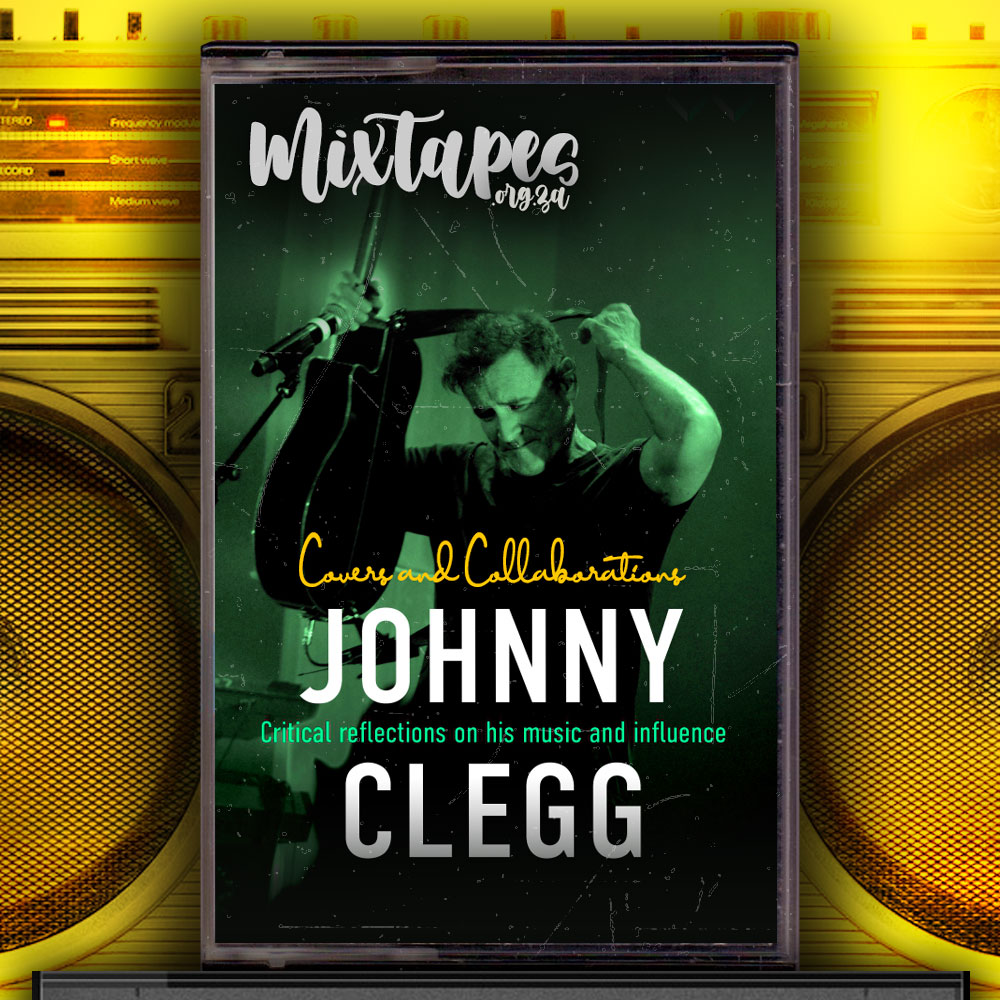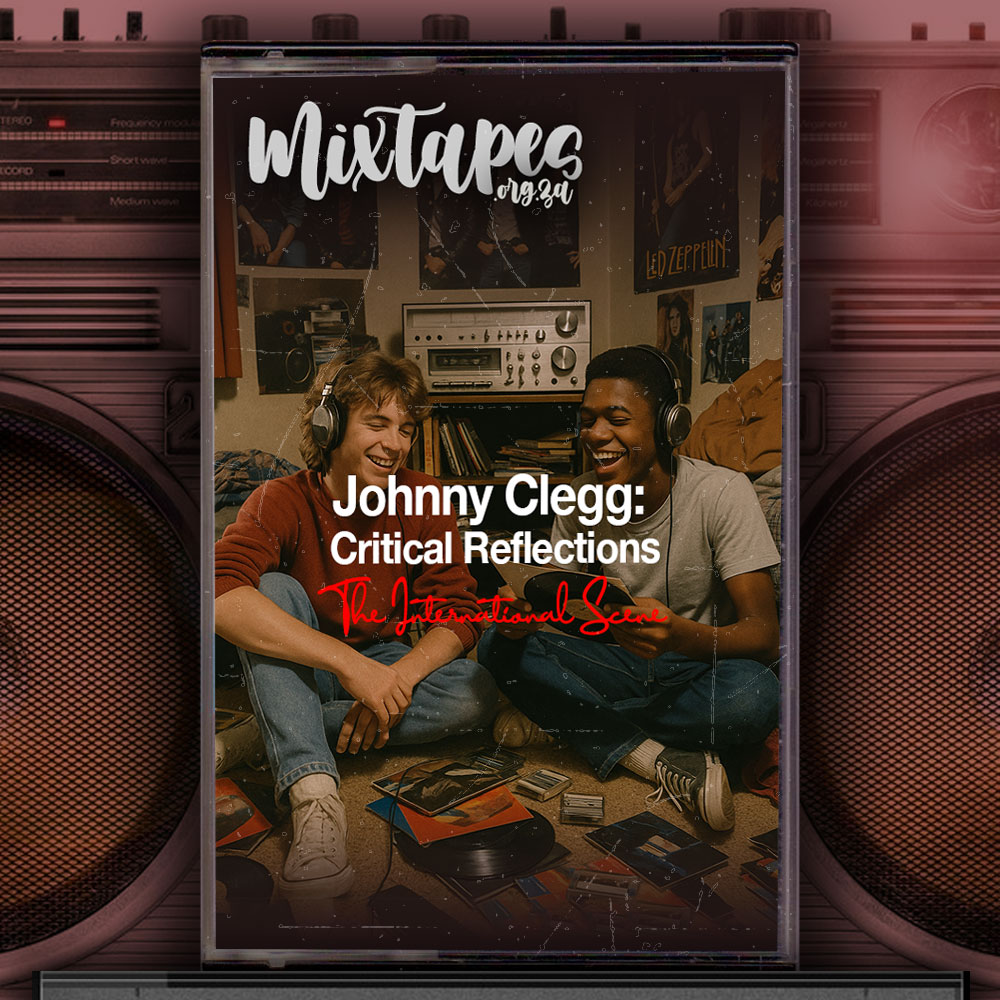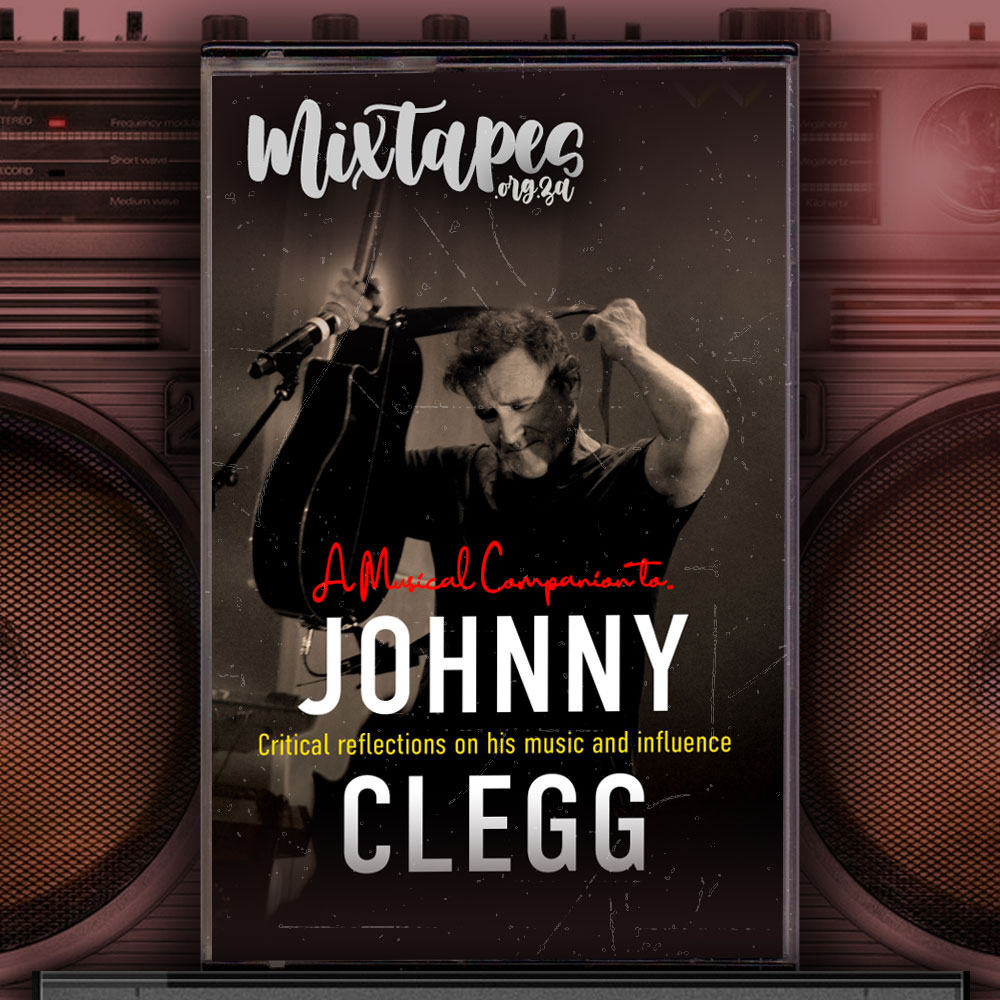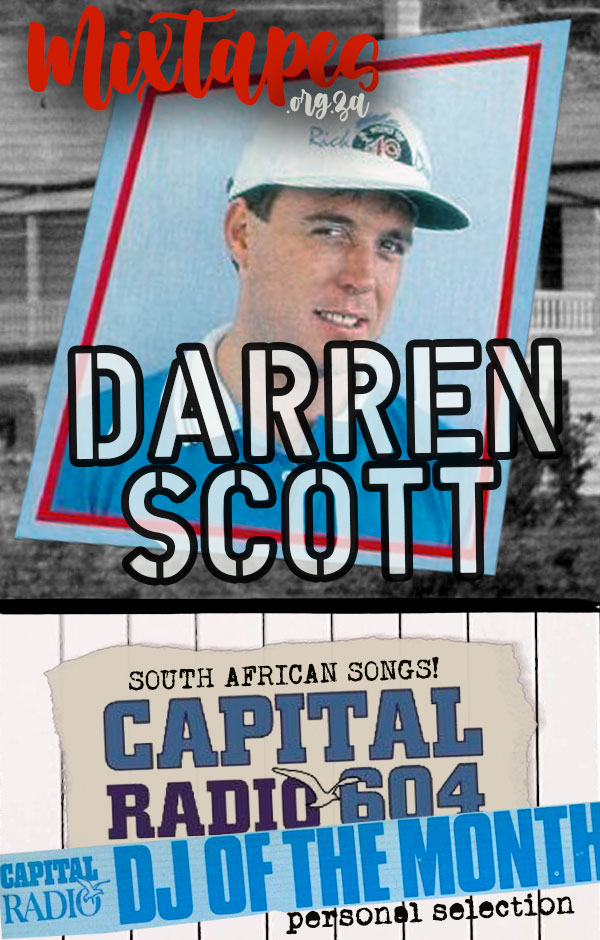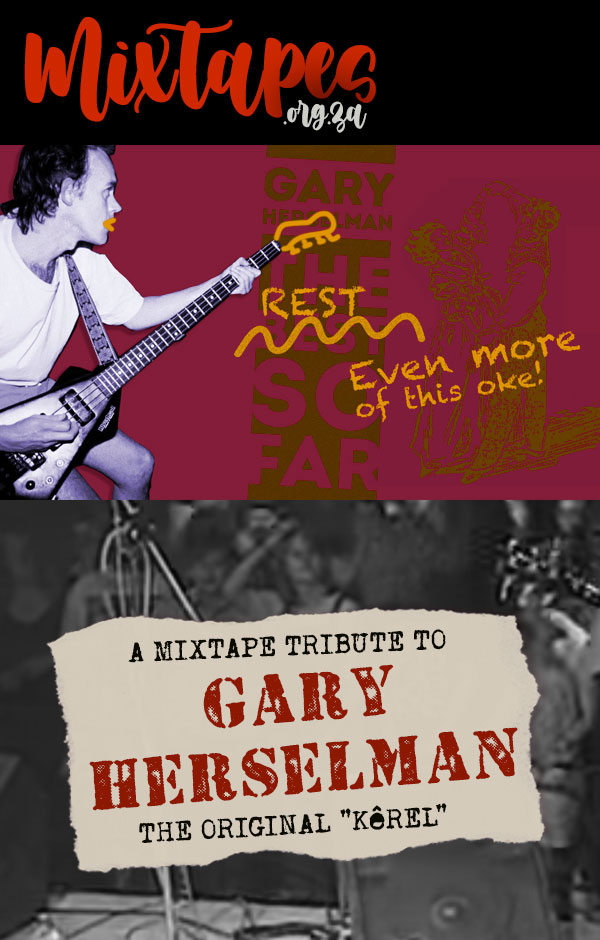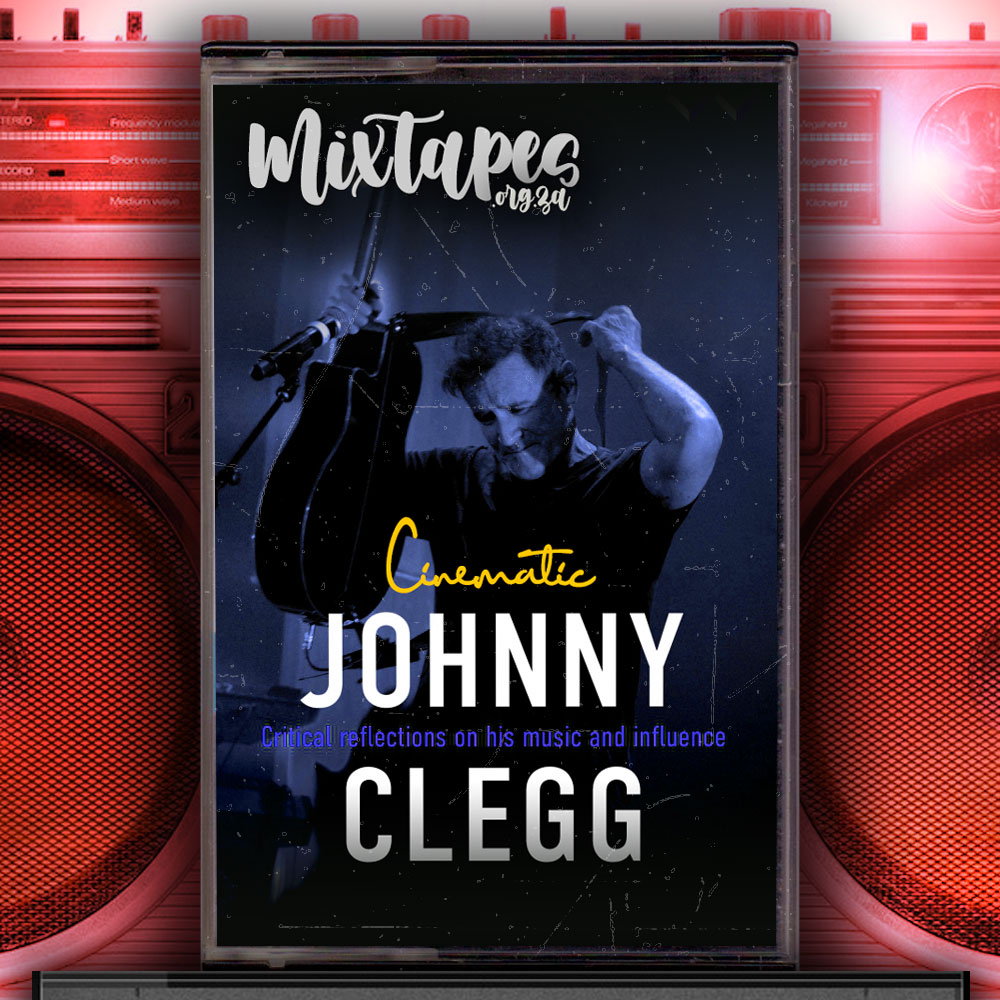
The final mixtape of our four-part series focusing on Johnny Clegg documents the use of Johnny Clegg’s music in films. In one of the chapters in the book, Johnny Clegg: Critical Reflections on his Life and Influence, Chris Letcher considers the use of Clegg’s music in films. In particular he focuses in detail on two examples: Savuka’s ‘Scatterlings Of Africa’ in Barry Levinson’s Rain Man (1988) and ‘Cruel, Crazy, Beautiful World’ in John Hughes’ Career Opportunities (1991).
Letcher contends that, while the glossy, polished pop production techniques of the two songs undoubtedly facilitated broader exposure through the selection of these songs as part of film soundtracks, their positioning within the films may have simultaneously obscured the music’s deeper essence and resonance. Nevertheless, he concludes, ‘there is something pleasingly ungovernable about their presence on these soundtracks …’
For this mixtape we have put together a fairly comprehensive set of songs used in films which involve Johnny Clegg in some way or another, most often as a songwriter (individual or collaborative) and performer. The songs appear chronologically according to when first used in a film (on some occasions a particular song was used in more than one film).
The mixtape begins with several songs taken from the 1986 Jock Of The Bushveld soundtrack, starting with ‘Great Heart’ performed by Savuka. As Clegg noted, “This was a song I wrote for the first feature movie of a classic South African story – Jock of the Bushveld. It’s a story about a man and dog in the Eastern Transvaal and the many wonderful adventures they had in the early pioneering days of the late 1800s. It’s a song about the promise of the never ending African horizon, and the simple truths of love and companionship under and African sky.” Also included in the soundtrack are four Juluka songs: ‘African Litany’, ‘Unkosibomvu – The Red King’, ‘Gijim’beke’, and ‘Bull Man Free’. ‘Great Heart’ was also used in the 2000 film Whispers: An Elephant’s Tale.
Savuka’s ‘Third World Child’ was included in the1987 film, Saturday Night at the Palace, and adaption of Paul Slabalesky’s play. Savuka’s version of ‘Scatterlings of Africa’ was used in Rain Man (1988). A specially mixed version from the soundtrack is featured here. ‘Cruel, Crazy, Beautiful World’, also by Savuka, was used in two films: Opportunity Knocks (1990) and Career Opportunities (1991).
Johnny Clegg and Hilton Rosenthal collaborated with Hans Zimmer when he worked on the music for The Power of One (1992). The song ‘The Power Of One’ was originally intended as the end-title theme. Johnny re-wrote the lyrics for his solo song ‘All Is Not Lost’ and Teddy Pendergrass sang it. Hilton Rosenthal noted that, “We delivered the recording with 2 hours to spare, only to hear a few hours later that [the director] had decided that a contemporary recording ‘did not work in the movie’. Anyway, the track was still used on the soundtrack album.” Also featured on the soundtrack were two pieces arranged and produced by Johnny Clegg: ‘Southland Concerto’ (which incorporates a section of Savuka’s ‘When The System Has Fallen’) and ‘Senzenini’.
‘Life Is A Magic Thing’ is a solo song by Johnny Clegg which he specifically wrote for the 1992 film, Ferngully: The Last Rain Forest, as was ‘Sacred Ground’ written for a 1995 version of Jock of the Bushveld. Savuka’s ‘Asimbonanga’ featured in Mandela (1996) and ‘Dela’, also by Savuka, featured in George Of The Jungle (1997) and the sequel, George Of The Jungle 2 (2003).
The lyrics and music for ‘Digga Tunnah Dance’ by Vinx & Lebo M were written by Johnny Clegg, Lebo M, Martin Erskine, and Tony Phillips. The song was used in The Lion King 3 (2006). Johnny Clegg’s ‘Manqoba’ was performed by Mandisa Dlanga and Johnny Clegg for Goodbye Bafana (2007), while Overtone and Yollandi Nortjie performed Savuka’s ‘The Crossing’ for inclusion in Invictus (2009). Johnny Clegg wrote ‘Golden Country’ for the USA animated version of Jock Of The bushveld (2011) and the mixtape ends with Juluka’s ‘Impi’ which was featured in the 2017 South African film Beyond The River.
- Great Heart – Johnny Clegg
- African Litany – Juluka
- Unkosibomvu: The Red King – Juluka
- Gijim’beke – Juluka
- Bull Man Free – Juluka
- Third World Child – Savuka
- Scatterlings Of Africa – Savuka
- Cruel, Crazy, Beautiful World – Savuka
- The Power Of One – Teddy Pendergrass
- Southland Concerto – Hans Zimmer
- Senzenini – Hans Zimmer
- Life Is A Magic Thing – Johnny Clegg
- Sacred Ground – Johnny Clegg
- Asimbonanga – Johnny Clegg & Savuka
- Dela – Savuka
- Digga Tunnah Dance – Vinx & Lebo M
- Manqoba – Mandisa Dlanga & Johnny Clegg
- The Crossing (Osiyeza) – Overtone And Yollandi Nortjie
- Golden Country – Johnny Clegg
- Impi – Juluka


